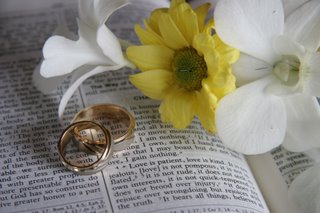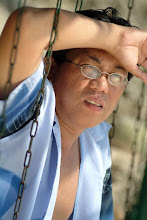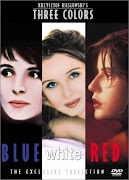 If you've got the temerity for a tightrope pirouette and the gall to imagine yourself a contender for the reality show Fear Factor, it wouldn’t be too farfetched to see a camel entering the eye of the needle. Or, the hole of a wedding ring.
If you've got the temerity for a tightrope pirouette and the gall to imagine yourself a contender for the reality show Fear Factor, it wouldn’t be too farfetched to see a camel entering the eye of the needle. Or, the hole of a wedding ring. Long before Sun.Star Cebu sent shivers down the spines of singletons with its recent three-part series called “Going Solo” — proving there’s an epidemic of unhappiness in the city enough to make annulment lawyers grinning their way to the banks— a whole galaxy of words has coalesced into a common fact: Marriage is a matter of courage.
Forget the flair of the wedding planner who, having read too much romance novels or seen her immodest share of Hollywood potboilers, will have the prospective couple believe that everything in the glossy magazine or in her favorite teleserye is true. Ah, the mirage of two minds admitting no impediment to the pleasure principle in this era of advertising.
Truth be told, no wedding planner takes care about what happens next because it’s really up to the couple concerned to make a sense of rhythm and order, a cosmos out of the chaos theory so true to the frowns of feminists and the caution of the commitment-phobic.
“It is the most challenging relationship any of us attempt in our lives, and an increasing number of us seem to fail,” goes the blurb of Elizabeth John Howard’s book Marriage, titled simply thus as if to leave no room for further complications. It’s one of the gifts my wife and I received when we agreed to go headlong into our common adventure against the unknown four years ago.
It’s a jungle out there after the wedding photographer finds another client for a funeral, probably of someone who succumbed to the sweet hereafter in the wake of sleeping with snakes or swimming together with piranhas. Or so agree with a cuss “practically one couple every 24 hours” who kick themselves to Splitsville, as cited in the special report.

When one writer defined courage as a “conquest of fear,” he might as well have described marriage as a mind-over-matter engagement with reality at the risk of losing one’s head. Or, against the slings and arrows of domestic fortune, ducking under the matrimonial bed. If you don’t have the mind—or the moxie— for it, you could tear out your hair about psychological incapacity, like 95 per cent of the petitioner for annulments in the city.
From someone who came short of murdering her husband, erasing him from her existence the legal way out, it struck me that my friend C. still has the grace to wax hopeful for me and my wife, writing a dedication on the book’s flyleaf: “All the best.” Not for better or for worse, mind you. Something that I wished for her, too, when she opted not let the failure of her first marriage be a closure for finding and fulfilling herself.
Cautionary tales about lovebirds turning targets for slingshots, she got a first-hand account. But that hasn’t stopped her from daring to take a second chance. Hopefully this time, her second husband is someone she could hum an ode with against all odds. And, in the process of partaking the gifts of their individuality, may they become sentinels of each other’s solitude.
To rage is fine, true. But nothing beats the basic or the residual verities of clichés: Faith, hope, love. That, plus the creative spunk and, yes, the courage to chuckle against one’s cynical heart.
In closing, here’s a bit from Howard’s book that singletons might consider for a second look. “There is no greater risk, perhaps than matrimony,” averred Benjamin Disraeli, from a letter to a lady on her engagement. “But there is nothing happier than a happy marriage.”
__________________________________________________________________
Howard's anthology is a treasure trove of extracts from novels, short stories, poems-- all illustrating the changing moods of marriage, from joy to despair. Her choices are eclectic and refreshingly unexpected, ranging from Anton Chekov, C.S. Lewis, Jane Austen, Michel de Montaigne, Erich Maria Remarque, Robert Graves, Oscar Wilde, Franz Kafka, Thomas Hardy, Virginia Woolf, Gustave Flaubert, William Shakespeare, James Thurber, Evelyn Waugh, George Eliot, George Bernard Shaw, Benjamin Disraeli, etc.

























































2 comments:
Thanks, Edward! Wish you well in your own marriage. Come back again.
Post a Comment